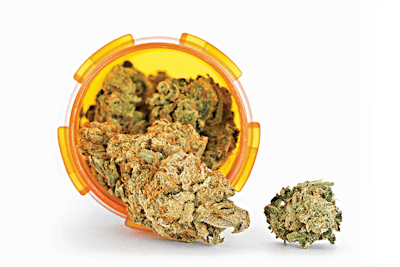
This article originally appeared in the April 2018 issue of Cannabis Dispensary. To subscribe, click here.
Since adult-use legalization began, California regulators have been on the road performing random, surprise compliance checks at licensed cultivators, manufacturers
This puts the state’s regulated cannabis businesses in a quandary. The new (temporary) regulations were issued only weeks before the Jan. 1 implementation date, leaving most companies without adequate time to design, manufacture and receive compliant packaging and labeling materials. This has left compliance up to individual retailers, who, under temporary regulations for the “transition to the legal market,” can place all non-compliant products into one big, compliant exit bag in hopes of satisfying the regulators.
At Magnolia Wellness, the dispensary I manage in Oakland, Calif., each exit bag must have five warning labels. First is the “universal warning symbol,” a triangle with an exclamation point and a marijuana leaf inside. The state mandates the size of this symbol, and
Then there are two “government warnings”—one for edibles and one for other cannabis products. These warnings indicate that cannabis is a Schedule 1 controlled substance, that it should be kept away from children and that it is only legal for medical users and people 21 and older. Each warning states that cannabis may be harmful to pregnant or breastfeeding
Finally, California requires the Proposition 65 (also called the “Safe Drinking Water and Toxic Enforcement Act”) warning, which tells consumers that cannabis contains chemicals that are known to cause cancer, such as beta-myrcene, as well as cadmium, which is associated with birth defects and other reproductive harms. Private lawyers are searching for ways to profit off Prop. 65 by challenging dispensaries’ compliance. Include this warning, or be sued and lose.
To read the full article in Cannabis Dispensary's April 2018 issue, click here.
Top photo © iStockphoto


























